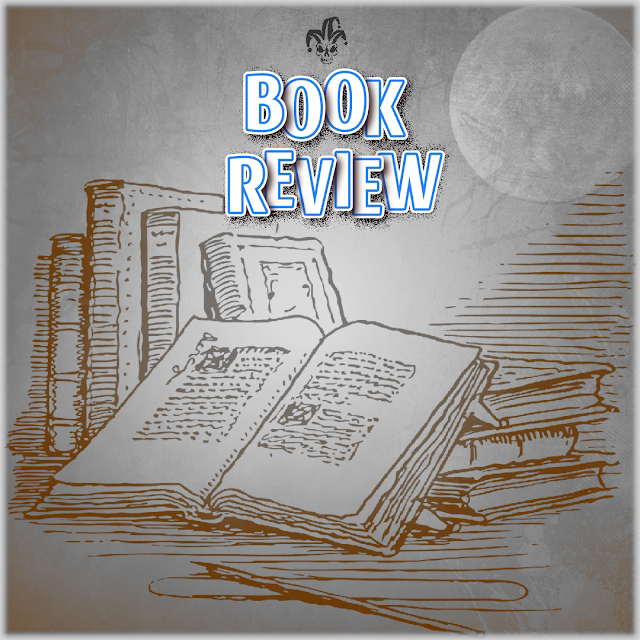Gods of The Wyrdwood | R.J. Barker
It's another week and here we are wit a new review. This time it's God's of the Wyrdwood by R.J. Barker, the start of his new series The Forsaken Trilogy.
The northlands of Crua are locked in eternal winter, but prophecy tells of the chosen child – who will rule in the name of their God, and take warmth back from the South. Cahal du Nahere was raised to be this person: the Cowl-Rai, the saviour. Taken from his parents and prepared for his destiny.
But his time never came
When he was fifteen he ceased to matter. Another Cowl-Rai had risen, another chosen one, raised in the name of a different God. The years of vicious physical and mental training he had endured, the sacrifice, all for nothing. He became nothing.
Twenty years later, and Cahal lives a life of secrecy on the edges of Crua’s giant forests – hiding what he is, running from what he can do. But when he is forced to reveal his true nature, he sets off a sequence of events that will reveal secrets that will shake the bedrock of his entire world, and expose lies that have persisted for generations.
Gods of the Wyrdwood is the start of a new series by R.J. Barker.
As usual it has the signature of R. J. Barker, in that it is set in a harsh world with harsh people.
The story is set in the land of Crua, a land dominated by the cloud trees of the Wyrdwood. Similar, to The Tide Child trilogy, Barker bases the economy of the land on an alternative substance, but rather than being dragon bones, this time it is wood.
The story revolves around Cahan du Nahare, a forester that lives on the outer edges of the village of Harn. Cahan ekes out a living in the edges of the village, shunned for being clanless and an outsider for being different.
The other point of view is the High Leoric Kirven and her offspring Venn, Trion to the raising Cowl – Rai, the living embodiment of the cruel god Tarl – an – Gig, who is sweeping across the land with their army of Rai, subjugating the people. Kirven’s lives in the Harnspire of Harn – Larger and is basically the high ruler of the land.
One of the things that I love about R.J. Barker is that as an author he throws you into a world to discover how things work as you go along. At first, this can seem a little disconcerting as the reader will be bombarded with new terminology and lots of other information without an explanation. Barker does not hold your hand with casual info dumps and exposition to give the reader that gradual exposure to the world. He just chucks the reader in at the deep end and expects the reader to get on with it. As a reader you are thrust straight into the story without the usual nice foundations of learning about all the rudimentary bits of information that are needed to make you feel safe, and that is what I really love about Barker’s worlds. You feel unsafe as you traverse the world, which gives you an impression of how the characters feel.
I think one of the other things that I found interesting was Barker’s approach to storytelling in this book. In this book, the story telling is intersected by different stylistic approaches. Whilst most of the book is told in third person, there are these jarring intersections of a second person narrative which gives some background to a particular character. Like I said, this tells the story of one of the main characters and I imagined these little vignettes as being a concentric circle of trees that moves to the heart of the story.
The other thing is that it is told quite episodically in its structure, which I felt gave a kind of mixed tempo in its pacing as there are these mini adventures in the story that kind of reach their climax at different stages in the books before the book reaches its ‘big’ ending. Again, similarly to The Tide Child trilogy, this put me in mind of earlier SFF novels like Moorcock, and I must say that RJ Barker has always reminded me of Michael Moorcock and for me, Barker is the successor to Moorcock’s crown of writing the most inventive and original fantasy stories.
Now, we can’t have a review of an R.J. Barker book without mentioning the characters. As usual, the characters in the book are brilliant and well rounded. At times, I did find the main character Cahan a little annoying, particularly as he is always falling on his base desire of wanting to run away from each situation, which at times constricted the story. However, as the book reaches its ending his character arc becomes more prescient and I cannot wait to see how he grows further in the following books in the story. But, it is the monk Udinney, steals the show every time that she turned up. There are other characters that add to the story, but none more so than the Wyrdwood itself which has both an ominous presence throughout the story and the greatest mystery.
I also need to mention that the end of this story really stressed me out (in a good way!) and I had to take a break as the tension of the story mounts towards the end.
In the acknowledgments, Barker highlights that ‘whilst the events of the Wyrdwood seem realtively simple, but just like the seeds below the village of Harn, this is a start, and from it, something stranger and far more complex will grow’.
Well, in reply to this all I can say is bring it on.










Comments
Post a Comment